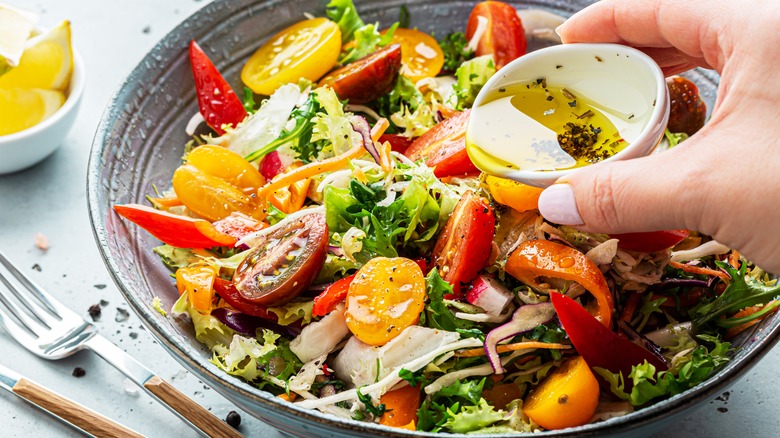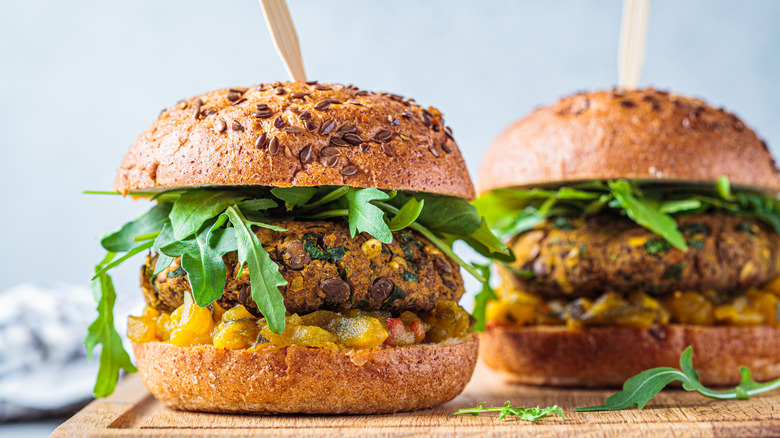Is There A Difference Between Plant-Based And Vegan Diets?
There are so many different diets out there that your head can spin trying to make sense of them all. You can eat according to the Mediterranean diet, go gluten-free, be a vegetarian, a vegan, a pescetarian, an omnivore, or a meat-eater. Devotees of these diets claim you will feel better, lose weight, or live longer if you follow them.
But according to New Scientist, "There is no such thing as a healthy diet that will work for everyone. People respond to food in such idiosyncratic ways that everybody needs a personalized eating plan." It comes down to what you and your doctor decide, what foods make you feel good and what you enjoy eating. It may also depend on your beliefs and how you see the world. You may stray from your diet from time to time, but when you find something that works, stick with it.
However, before you settle on one eating style, you should know there is some confusion about two similar diets: plant-based and vegan. Is there much of a difference between these two diets?
Plant-based vs. vegan diets
Plant-based and vegan diet plans are both based on vegetables and plants. But the differences lie in the strictness of the diet.
Vegans eat no animal products or any foods that come from the work of animals. That means traditional meats and eggs but also honey, lard, gelatin, mayonnaise, or any type of dairy product, including cheese. A vegan diet is considered healthy, but there are some risks. The diet can skimp on nutrients such as protein, calcium, vitamins B12 and D, and omega-3 fatty acids. You can compensate for these deficiencies with some careful planning and supplements. Take a look at the vegan food pyramid for more in-depth information.
A plant-based diet is not as strict as a vegan diet. People following this type of diet may eat meats, seafood, eggs, and dairy, although the diet is mainly made up of plant foods. And there is a subset of this diet: whole foods plant-based, which means the foods can be eaten raw and are at most minimally processed.
Try some vegan and plant-based recipes
One more thing about the vegan diet: it extends to your lifestyle as well. Vegans do not wear any clothing made from or by animals, which includes leather, silk, and wool. They may also avoid taking certain medications that have been tested on animals and avoid personal care products, such as cosmetics, that are made with animal products or are tested on them. Plant-based diet devotees do not usually follow these restrictions.
According to the Centers for Disease Control and Prevention, most experts say that you should change gradually if you want to switch to a completely different diet. It takes time to make a drastic change in your eating habits.
Now that you are going plant-based or vegan, what will you eat? Try this recipe for vegan lasagna, which is rich in thyme, herbes de Provence, onions, and garlic. If you crave pasta on a plant-based diet, try butternut squash cavatelli, which is creamy with mascarpone cheese, ricotta, and butter. Or you can transform your favorite recipes into vegan or plant-based versions using these tips from Food Network.


